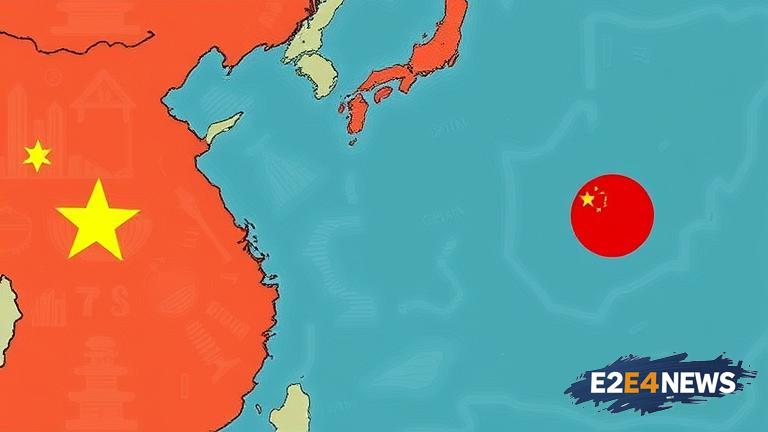The dispute between China and Japan over a gas field in the East China Sea has intensified, with Beijing rejecting Tokyo’s protest over the issue. The gas field, located in a disputed area of the sea, has been a point of contention between the two nations for years. China has been actively exploring and developing the gas field, despite Japan’s claims that it lies within its exclusive economic zone. Japan has long been concerned about China’s growing military presence in the region and its increasing assertiveness in the South China Sea. The Japanese government has lodged a formal protest with China, calling on it to stop its activities in the gas field. However, China has refused to back down, stating that its actions are lawful and justified. The Chinese government has accused Japan of trying to undermine its sovereignty and territorial integrity. The dispute has significant implications for regional security and the global economy, as the East China Sea is a critical trade route and a major source of oil and gas. The United States has also weighed in on the issue, calling on China to respect Japan’s sovereignty and territorial integrity. The situation has sparked concerns about the potential for conflict in the region, with some analysts warning that it could escalate into a full-blown crisis. The gas field is estimated to hold significant reserves of natural gas, making it a highly prized resource for both China and Japan. The dispute has also highlighted the need for greater cooperation and dialogue between the two nations, as well as the importance of resolving territorial disputes through peaceful means. The Chinese government has stated that it is willing to engage in talks with Japan to resolve the issue, but it has also made it clear that it will not compromise on its sovereignty and territorial integrity. The Japanese government has also expressed its willingness to engage in dialogue, but it has also emphasized the need for China to respect its sovereignty and territorial integrity. The dispute has significant implications for the regional security architecture, with some analysts warning that it could have far-reaching consequences for the stability of the region. The situation has also sparked concerns about the potential for conflict in the South China Sea, where China has been actively asserting its claims to disputed territories. The United States has been critical of China’s actions in the South China Sea, and has called on it to respect the sovereignty and territorial integrity of other nations in the region. The dispute over the gas field in the East China Sea has highlighted the need for greater cooperation and dialogue between nations in the region, as well as the importance of resolving territorial disputes through peaceful means. The situation has sparked concerns about the potential for conflict in the region, and has highlighted the need for nations to work together to resolve their differences and promote regional stability. The Chinese government has stated that it is committed to resolving the dispute through peaceful means, but it has also made it clear that it will not compromise on its sovereignty and territorial integrity. The Japanese government has also expressed its commitment to resolving the dispute through peaceful means, but it has also emphasized the need for China to respect its sovereignty and territorial integrity. The dispute has significant implications for the global economy, as the East China Sea is a critical trade route and a major source of oil and gas. The situation has sparked concerns about the potential for conflict in the region, and has highlighted the need for nations to work together to resolve their differences and promote regional stability.
